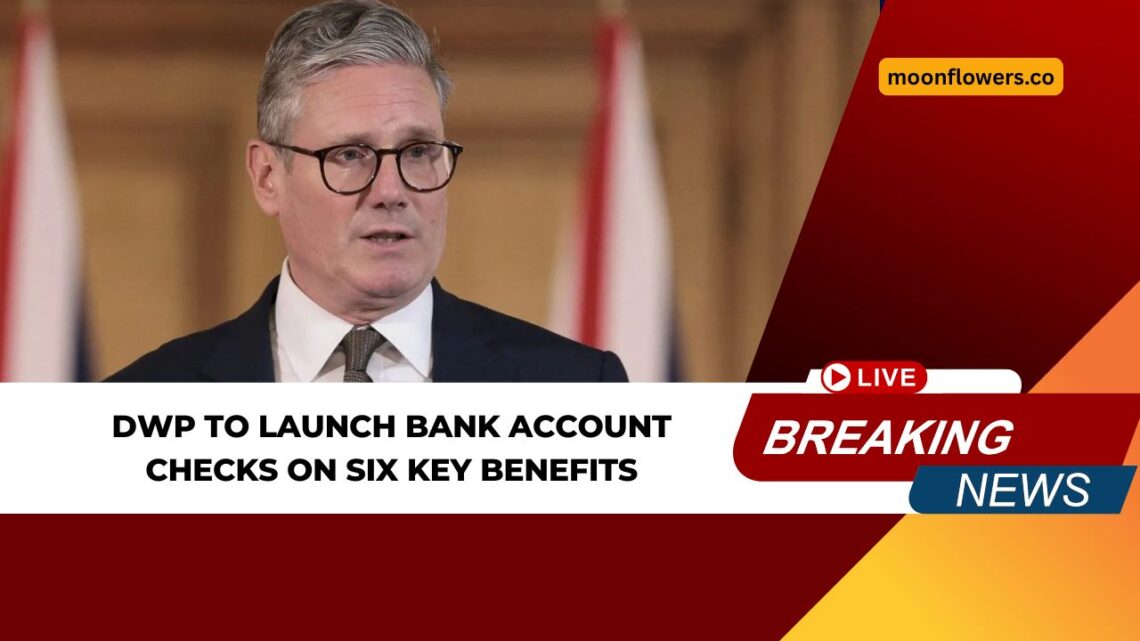The UK Government is rolling out new Eligibility Verification Measures through the Department for Work & Pensions (DWP) that will allow bank account checks on those receiving certain means-tested benefits.
These checks are part of wider reforms under the Public Authorities (Fraud, Error and Recovery) Bill 2025, aimed at reducing benefit fraud, error, and overpayments while ensuring claimants meet eligibility criteria.
Below we explain what is changing, which benefits are affected, how the checks work, and what protections are in place.
What Are the Eligibility Verification Measures?
- Eligibility Verification Notices (EVNs): Banks and other financial institutions can be required to provide specific data on accounts that receive certain DWP benefit payments, or accounts linked to those. They must examine whether the account meets certain eligibility indicators, such as savings/investments or capital held.
- Limited Data Sharing: The measures explicitly exclude transaction data and “special category data” (e.g. health status, ethnic origin, political opinions) from what banks must share.
- Human Oversight & Safeguards: Even after data is shared, decisions affecting benefit eligibility will involve human review. Banks can appeal EVNs or penalty notices, and there is oversight, including an independent reviewer/reporting to Parliament.
Which Benefits Are Affected
The initial rollout will focus on benefits where incorrect payments due to fraud or error are seen as relatively high. The specified benefits that are covered (or will be covered) are:
| Benefit | Key Details / Role in Verification Scheme |
|---|---|
| Universal Credit | Savings/capital limits are indicators; overpayments of significant magnitude have previously been identified. |
| Pension Credit | Capital/savings fraud and error are also relevant here. |
| Employment and Support Allowance (income-related) | High levels of error/overpayment in relation to capital and abroad-related fraud have been recorded. |
| (Possibly more in future with Parliamentary approval) | Expansion to other means-tested benefits may occur via regulations. |
Note: State Pension is explicitly excluded from these powers.
How the Checks Will Work
- Banks will receive an Eligibility Verification Notice specifying eligibility indicators that need checking for specified accounts.
- For example: under Universal Credit, one of the key indicators is whether the claimant has more than £16,000 in savings or capital—crossing that threshold may trigger further inquiry.
- Only limited information will be shared: sort code/account numbers, account holder name and date of birth, whether the account meets the eligibility indicators. No transaction histories or details of spending.
- Accounts must be those that receive a relevant DWP benefit payment, or that are linked to that account.
Estimated Impact & Savings
| Metric | Estimate / Fact |
|---|---|
| Savings to Public Funds | Up to £940 million over 5 years once scheme fully in effect. |
| Annual Savings When Fully Rolled Out | Around £500 million per year. |
| Number of Overpayments Identified | Estimated 50,000-100,000 per year. |
Concerns & Protections
- Privacy concerns: Critics worry about surveillance, data protection, and vulnerability of claimants, particularly if limited data leaks or misuses occur.
- Data protections in law: UK GDPR, Data Protection Act, and limitations in the Bill ensure only permitted data is shared. Councils, regulators, and oversight bodies are part of the framework.
- Human decision required: Having data flagged does not mean automatic loss of benefit. Claimants will have chance to respond; investigations follow human scrutiny.
Rollout Timeline
- The legislation is part of the Public Authorities (Fraud, Error and Recovery) Bill 2025.
- It is expected to be gradually implemented (“test and learn”) initially focusing on a subset of benefits (UC, Pension Credit, ESA), then possibly expanded.
- Full rollout for all benefits under scope will take place over several years.
The new DWP bank account checks under the Eligibility Verification scheme mark a deeper move toward data-driven oversight for certain means-tested benefits.
While the goal is to reduce fraud, error, and overpayments—saving hundreds of millions per year—the reforms come with strong legal protections, oversight, and limits on what data can be accessed.
Claimants receiving Universal Credit, Pension Credit, and Employment and Support Allowance should be especially aware of how savings or capital are assessed. Transparency, accurate records, and understanding one’s rights will be more important than ever.
FAQs
Will the DWP check every bank transaction or just account balances?
No. They will not have access to transaction or spending details under EVNs. The checks are limited to whether the account meets certain eligibility indicators (e.g. savings above threshold).
Will having slightly over the savings limit immediately disqualify someone from Universal Credit or other benefits?
Not immediately. Exceeding a threshold may trigger further inquiry but decisions will involve human review. Claimants may have exceptions, or circumstances that mitigate the issue.
What if the bank misses responding or shares too much information?
Banks have routes for appeal, including tribunals. There are penalties for over-sharing or non-compliance with EVNs. Oversight mechanisms are built in.









